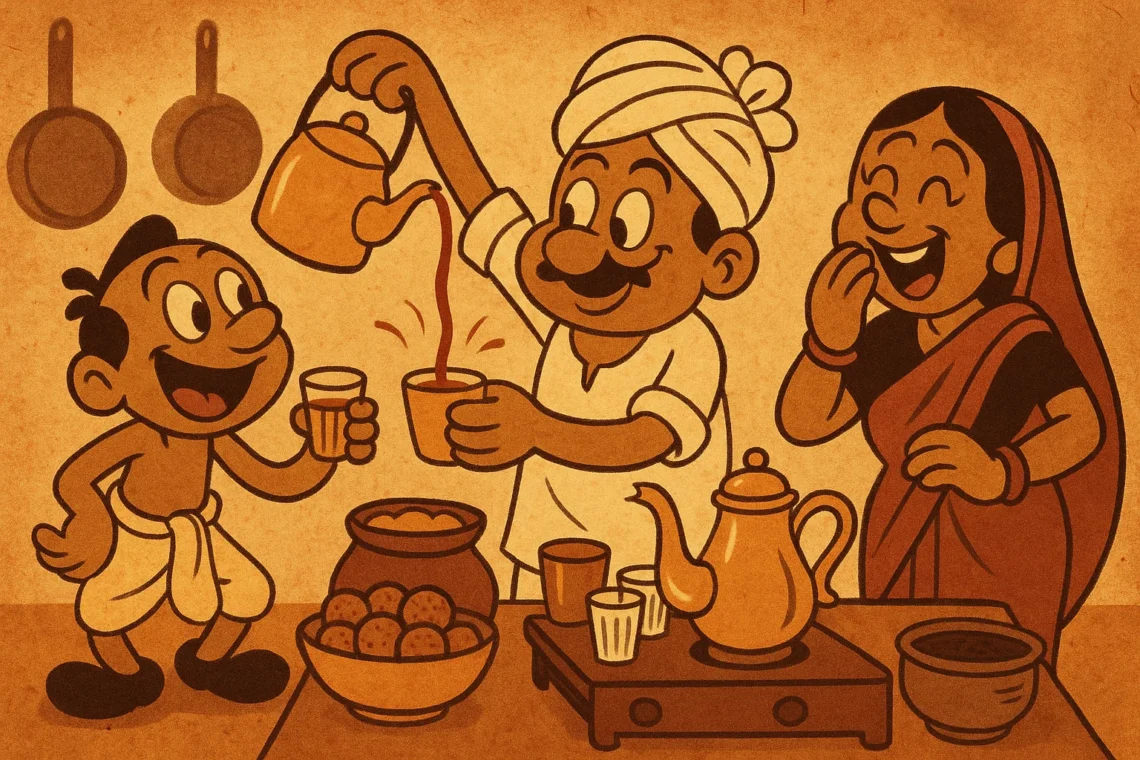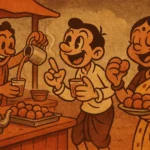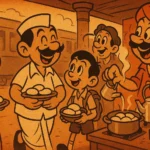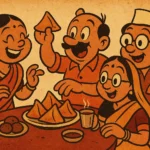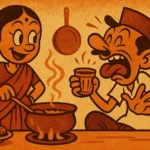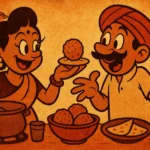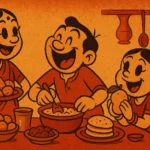There’s one outside every office. Every college gate. Every train station that matters. A small stall, a dented kettle, a line of chipped glasses that somehow never break. The chaiwala. But not just any chaiwala. That chaiwala. The one who knows when you got promoted before your boss does. Who knows who’s been sneaking off for secret cigarettes. Who pours your chai without asking, because he already knows how much sugar you like—and what kind of day you’re having.
In our galli, it was Bhola. No last name. No menu. No fixed rate, if he liked you. Just a small cart propped against a lamppost and an encyclopedic knowledge of everyone’s business. He brewed his chai like an oracle—boiling gossip, cardamom, and crushed ginger into a brew that was always somehow exactly what you needed.
“Tension wali chai?”
That was his classic line. If you showed up pacing, red-eyed, or unusually silent, Bhola wouldn’t ask what happened. He’d just hand you a glass and say, “Extra adrak today.” If you were celebrating? A dash of elaichi. Nursing a heartbreak? A longer boil and no questions. Failed an exam? Free chai, but only the first one. “Doosra paise wala,” he’d say, with a wink. “I’m a chaiwala, not a therapist.”
And Yet, He Was
He knew who was about to quit before HR did. He knew when two people stopped standing together in line. He knew whose father was in the hospital, whose visa got rejected, who was fasting but still came to smell the chai. Bhola didn’t pry—he observed. He listened. Between sips and stirs, he became the unofficial record-keeper of our lives.
And you couldn’t lie to him. You could lie to your boss. Your parents. Your friends. But to Bhola? One glance and he’d know. “Chini kam kyun?” he’d ask with that sideways look. “Something wrong?” And you’d cave. Not because he forced you. But because somehow, telling Bhola didn’t feel like confession. It felt like relief.
He Knew Too Much, But Said Too Little
Bhola had secrets. Dozens. Maybe hundreds. But he never spilled. He was the anti-social media—he stored your worst days in a drawer behind the tea leaves and never shared them. Not unless you brought them up first. Even when people moved away or stopped showing up, he remembered. “Woh lambi waali ladki? She liked cinnamon,” he’d mutter to no one. And just like that, she’d live again—for the length of a cup.
The Tea Wasn’t the Point
Sure, the chai was good. Strong. Balanced. Served in a glass that burned your fingers just enough to feel alive. But people didn’t come for the tea. They came for the ritual. The predictability. The unscripted therapy session. They came because Bhola offered the kind of attention that didn’t ask for anything in return. You didn’t have to perform. You just had to show up.
I Miss Him Now
In Austin, I make my own chai. Carefully brewed, perfectly strained. But it lacks something. The noise. The commentary. The tiny, judgmental shrug that said more than a paragraph. I miss the warmth of being known without having to explain myself. I miss someone noticing without demanding. I miss Bhola’s version of presence—quiet, consistent, and oddly divine.
Because the chaiwala isn’t just a vendor. He’s a keeper of stories, a witness to your in-between moments, a reminder that sometimes, all you need is a glass of chai and someone who already knows too much—and still lets you drink in peace.
Born in Mumbai, now stir-frying feelings in Texas. Writes about food, memory, and the messy magic in between — mostly to stay hungry, sometimes just to stay sane.

